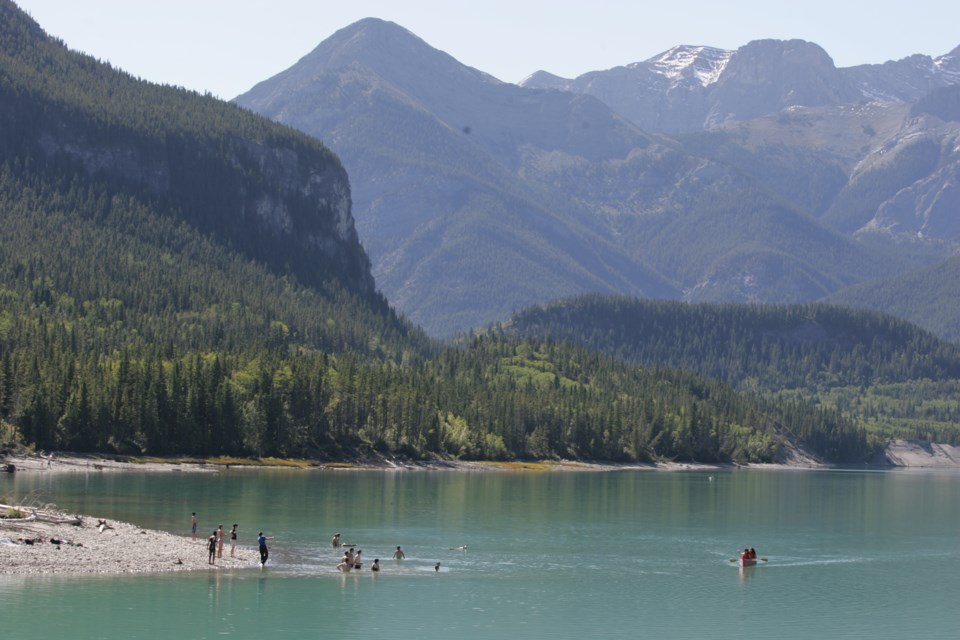KANANASKIS – Alberta Parks is investigating the possibility of recreation user fees in provincial parks.
An online survey, which people can do when they book a campsite, aims to get feedback from Albertans on the possibility of new or increased user fees to support programs, services and facilities.
Under consideration are fees on hiking trails, cross-country ski trails, boat launches, beaches, parking, education programs for schools, interpretive programs for the public, learn-to-camps, and building rentals such as reserving a picnic shelter for the day.
The public is also being asked their thoughts on an all-inclusive pass covering multiple activities for a day or an all-inclusive pass covering multiple activities for a year.
“We’re thinking to the future to ensure sustainability of the system,” said Jessica Lucenko, a spokesperson for Alberta Parks.
“We’ve looked across North America, and user fees are something many other jurisdictions use to maintain services and support quality visitor experiences in parks.”
According to the province, the Alberta Parks service cost about $86.1 million to run in 2018-19 and approximately $33.4 million was collected in revenues.
Camping and service fees at parks increased in the UCP government’s 2020 provincial budget, with the base fee climbing by $3 at most parks and by as much as $10 in others.
Approximately $5 million was cut from Alberta Parks operating budget, which led to the loss of seasonal staffing positions such as trail crews and interpreters.
Other budget cuts included a plan to stop grooming cross-country ski trails in Peter Lougheed Provincial Park, Mt. Shark and Kananaskis Village this coming winter.
Grace Wark, conservation specialist for the Alberta Wilderness Association, said she is aware of the user fee survey.
“We want to make sure if something like a fee system is coming into place it doesn’t preclude all types of Albertans from being able to access their natural areas,” she said.
“Fee systems can be beneficial for certain things – to make sure that maybe we have a little bit more funding for management or for things like local ecology,” she added.
“But at the same time, we want to make sure access is still inexpensive, if not free to Alberta’s public lands.”
Since its election campaign, the UCP has talked about introducing the Alberta Trails Act, which would allow the government to charge an annual fee for off-highway vehicles and people using camping trailers in the backcountry.
But Wark said the possible user fees suggested in the survey go well beyond that.
“It’s challenging… maybe something like parking could be good to have a fee to encourage people to carpool or use multi-user transportation system to get them out,” she said.
“At the same time we need to do it in a way that is still accessible and won’t prevent people from using the public spaces.”
The questionnaire on user fees is part of an online survey for campers who book campsites on reserve.Albertaparks.ca.
Lucenko said Alberta already has fees for camping and some services in provincial parks, including winter access at the Canmore Nordic Centre, Writing-on-Stone and Dinosaur Provincial Park tours, and some visitor services programming.
“Albertans have told us they value parks,” she said.
“Our survey is helping us understand what campers value, and how can we sustain the things that are most important to them.”
Entry and service fees are charged at most national parks and national historic sites across the country, where revenues are kept to support visitor services and facilities. An adult pass is $10 per day, while an annual group or family pass is $139.40.




